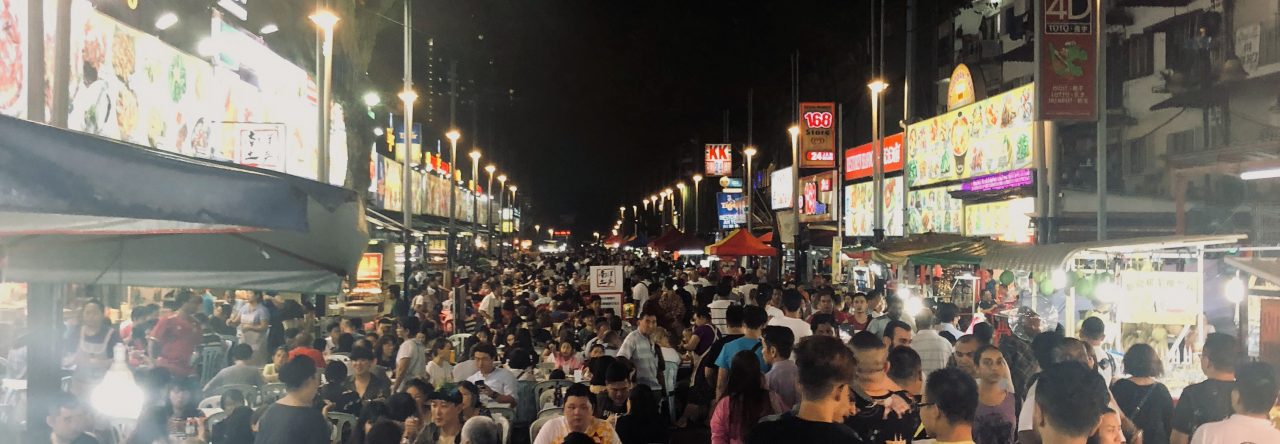Broadband was a bit of a revelation in Malaysia. Back home in the UK, 50Mbps is considered ‘superfast’ and the height of modern sophistication. Not to mention expensive. In Kuala Lumpur, several companies offer fibre broadband in packages with speeds of up to 1Gbps, at similar or lower prices than you’d pay for far less in the UK.
One of my first priorities, even before arriving in Malaysia, was to ensure I would have internet connectivity as soon as possible after moving in to my new home. So about a week before my arrival, with my landlord-to-be’s permission, I made arrangements to have TIME install their 500Mbps broadband package at the apartment I would be living in. Installation took place the day after move-in so that I was up and running with minimal delay.
All went very smoothly, with the only negative really being that TIME’s online booking process leaves something to be desired, and could have been a lot better at confirming that my installation had indeed been booked in. But the installation itself was fine.
In reality, you don’t get the full quoted speed, of course, and especially not over WiFi. But I did some speedtests over the following weeks, and these showed that I was often getting 400Mbps, typically about 300Mbps, and very rarely below 100Mbps. All for 145 MYR a month (approximately £27).
I could equally have got similar fibre broadband from Unifi, Maxis or Astro, but their packages did not seem quite as good as TIME’s, for my needs – your mileage may vary, of course.
By opting for fibre broadband, I was committing to a 12-month (or 24-months had I so chosen) plan tied to that specific apartment. I was comfortable with that, as I didn’t anticipate moving out sooner, and in any case my tenancy agreement was for 12 months. But I could alternatively have bought one of those little MiFi routers and taken a mobile broadband plan from Maxis, Celcom, Digi or Yes. The speeds wouldn’t have been quite so good (albeit theoretically up to 300Mbps is available), and of course you’re at the mercy of network coverage, but you get the flexibility of being able to take it with you wherever you go. But that’s what your phone’s for, isn’t it? 😉
On which subject, shortly after moving in I also switched my Maxis Hotlink Pay-As-You-Go package (which for the last few years has seen me regularly buying bundles of top-up vouchers on my trips to Malaysia to ensure I could keep my number alive from back in the UK in between trips) to a post-paid contract. 60 MYR (£11.50) per month for a SIM-only 10Gb data plus unlimited calls and texts package seemed pretty good to me.
I didn’t bother with a home phone line – I just use my mobile for local calls, and voice-over-IP (FaceTime, WhatsApp, Skype) for international. I’ve yet to have any problems with coverage here in Kuala Lumpur – I’m told Maxis is the best for that, so I can’t comment on whether other providers have drop-outs or dead spots, but so far so good.
NB possibly worth noting, as this may be different to what you’re used to, depending on where you’re coming from: the prices you see advertised in Malaysia for things like phone and broadband contracts are typically net of sales taxes (currently 6%), so you’ll always pay slightly more than the price they tempt you with…
Also, when taking out a contract, do check that they have correctly applied any offered discounts, and removed any options you don’t need. For example, you will typically be charged a few ringgit for paper billing, and no matter how many times you tell them you don’t want it, you will very likely find it included on your first month’s bill… One of the frustrations that you’ll just have to get used to in Malaysia is that things are rarely done right first time, and you’ll probably have to follow up at least twice before getting what you want. But with a bit of gentle persistence, they do get sorted out eventually.
A final observation: when you have multiple chat apps on your phone, say, WhatsApp, iMessage, Facebook Messenger, and maybe a few others, no need to pick your favourite. It’s fairly common, and perfectly acceptable, for a single conversation to take place across all of them simultaneously… 😉

Leave a reply